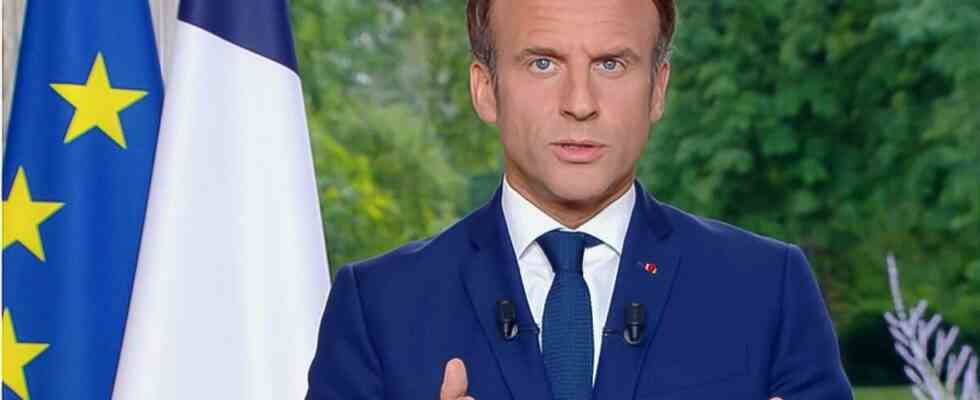Emmanuel Macron facing a new reality. On Wednesday, the Head of State “took note” of the results of the legislative elections, which deprived him of an absolute majority in the National Assembly. In his televised address, the president rejected the idea of a government of national unity, promising to “govern and legislate differently” to find “compromises” with the opposition. A large political gap that will be tested in the summer with a law on purchasing power.
Emmanuel Macron first recalled that he had won the presidential election on the basis, according to him, “of a clear project”, with “clear legitimacy”. Regretting the strong abstention in the legislative elections, he noted “the fractures, the deep divisions which cross our country and are reflected in the composition of the new Assembly”.
No government of national unity but “compromises”
The Head of State recalls that the presidential majority remains “the first political force” of the Assembly, but “no political force can make the laws alone”. With a “relative” majority, Emmanuel Macron mentioned two options for enlargement, “either by building a coalition contract, or by building majorities text by text”.
According to the tenant of the Elysée, the leaders of the oppositions that he received “have ruled out the hypothesis of a government of national unity, which is not, at [ses] eyes, not justified to date. “I believe that it is possible to find a clearer and larger majority to act”, he believes however, calling for a “political overcoming” which responds “to the aspiration [des Français] to get out of political quarrels”. To do this, “it will be necessary to clarify the share of responsibility and cooperation that the different formations of the National Assembly are ready to take”.
Will Emmanuel Macron succeed in this balancing act? Answer this summer. The Head of State promised “emergency measures to meet the country’s needs”, with “a law on purchasing power and so that work pays better”, “first decisions to move towards full -employment”, “strong choices on energy and climate”, “emergency measures for our health”…. Projects that he excludes from financing “by more taxes or budgetary or ecological debt”.

